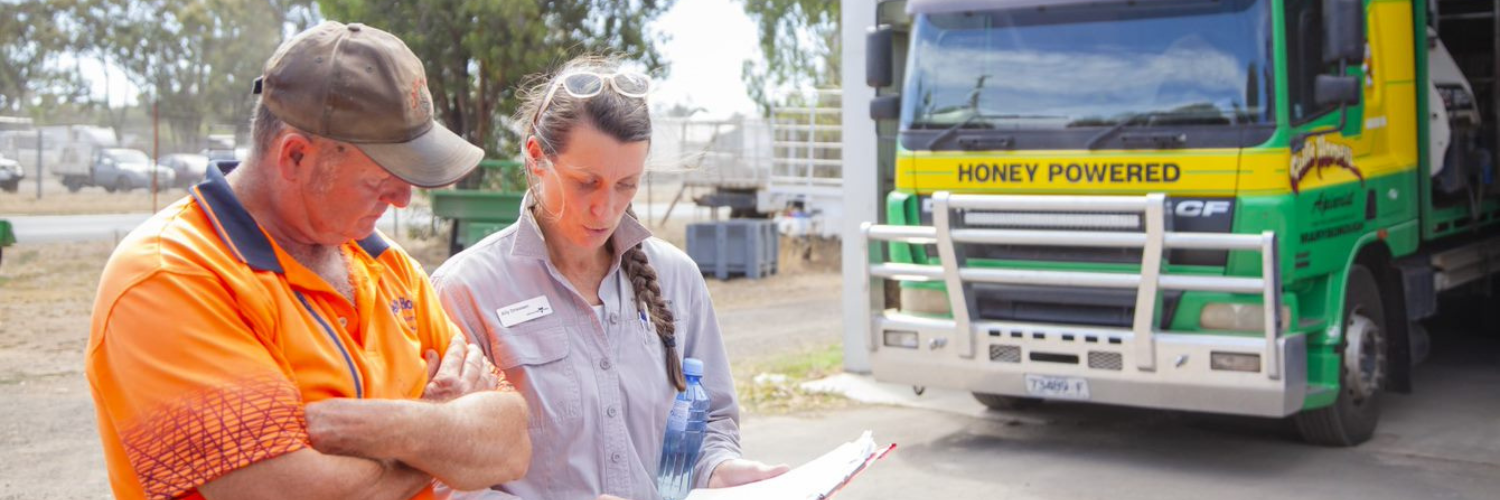Traceability resources

Find out more about the wide range of traceability projects, programs, and resources available.
GS1 standards are used in 100 countries globally, including Australia. Global standards help businesses speak the same language and align information across industries.
Standards provide a globally recognised, unique identification number that includes a Global Location Number (GLN), a Global Trade Item Number (GTIN) and a Serial Shipping Container Code (SSCC).
Products can be physically identified using a data carrier such as a barcode or QR code.
The World Trade Organization Standards Toolkit for Cross-border Paperless Trade nominates GS1 identifiers as the traceability standards of choice.
More information: visit the GS1 website.
The Trusted Agrifood Exports program supports farmers and will help boost the economy. The goal is to increase global export earnings of Australian grown food by $10 billion by 2030.
The program is aiming for a globally competitive export sector based on trusted ‘brand Australia, ’ with flexibility and diversity in export markets, greater premiums for Australia’s quality and trusted food, plus increased employment and opportunities in Australian agritech.
More information: visit the Trusted Agrifood Exports section of the CSIRO website.
The United States (US) Food and Drug Administration (FDA) has established the Food Traceability Final Rule that requires additional traceability records for certain foods.
The new requirements, are coming into force from 20 January 2026.
Businesses across the supply chain that manufacture, process, pack or hold designated foods that go to the US, may need to adopt modern traceability systems to meet these requirements.
The rule relates to foods on the Food Traceability List (FTL), such as soft cheeses, nut butters, some fresh produce and prepared foods that contain listed foods as ingredients.
Supply chain operators involved with these foods must maintain specific records (Key Data Elements), including product names, quantities or units of measure, harvest dates, location identifiers, and traceability lot codes.
Importantly, the Final Rule will require entities to keep specific records along the supply chain for two years and report them in an electronic sortable spreadsheet within 24 hours of a request.
More information: visit US Code of Federal Regulations
The Australian AgriFood Data Exchange project is an initiative to develop a platform for businesses in the agrifood space to share, reuse and merge data from a range of systems. The platform will operate in a secure environment on a permissions basis.
The vision is to create an interconnected data highway for Australia’s AgriFood value chain.
More information: visit the Australian AgriFood Data Exchange website.
Deakin University’s Implementing Food Traceability Program provides guidance and support to achieve end-to-end traceability of food products.
The work is beneficial for industry to deliver assurance to consumers of their produce and reduce the time and cost to achieve a line of sight along the product’s journey.
A series of guides have been developed through the program to help industries take a consistent approach to traceability. The program is an initiative of Deakin University’s Food Traceability Lab and industry partners.
More information: visit the Implementing Food Traceability website.
The National Freight Data Hub is a way for industry and government to share and use freight data.
The National Freight and Supply Chain Strategy highlighted the need for a national approach to data consistency across jurisdictions and along supply chains. The Freight Data Standards project is working to deliver better data exchange to improve decision making and productivity.
More information: visit the National Freight Data Hub website.
Australia’s National Agricultural Traceability Strategy 2023 to 2033.
The strategy was co-designed from 2022 to 2023 with a wide range of stakeholders along agricultural supply chains, from producers to retailers and government regulators.
This strategy plays a critical role in strengthening Australia’s biosecurity systems, while supporting Australian farmers to capitalise on trade opportunities overseas.
More information: visit the Australian Government website.